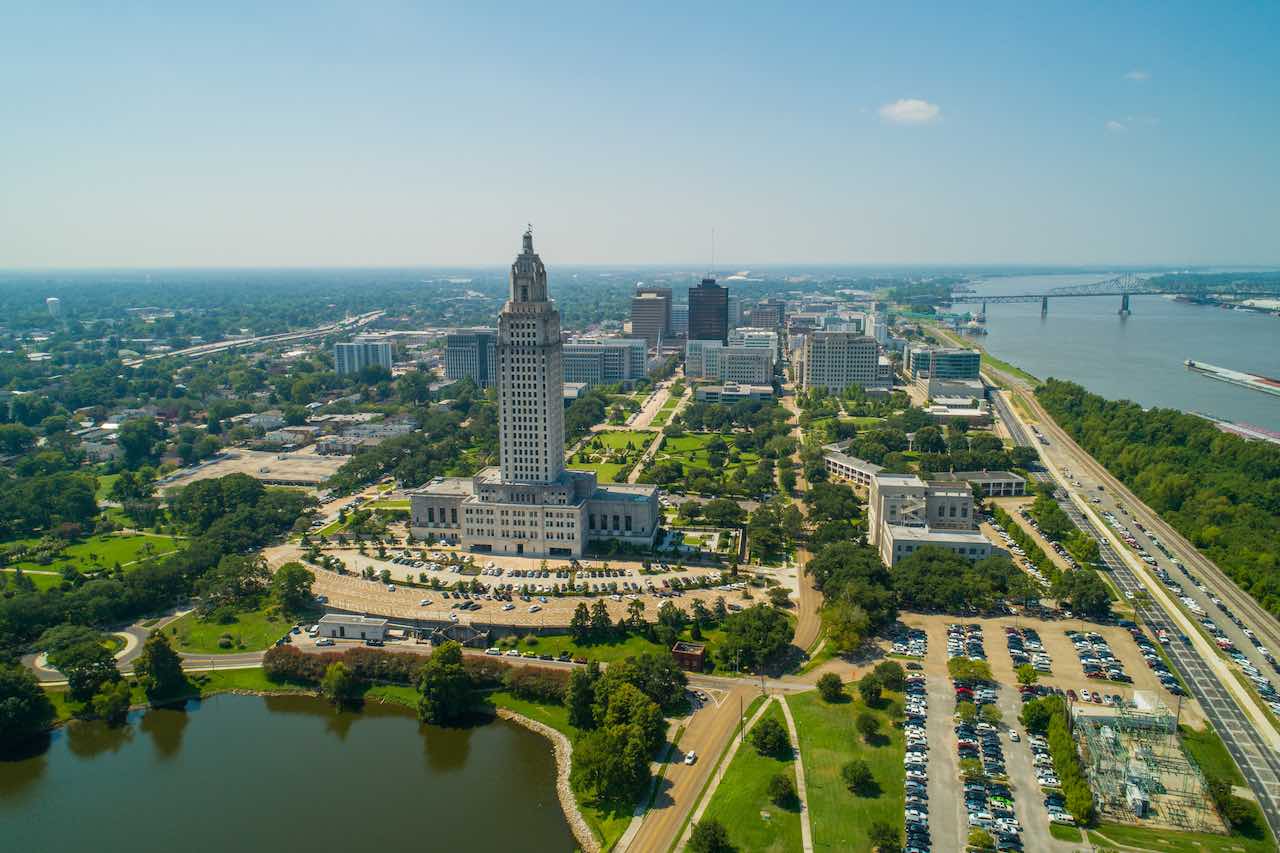Living off the grid in Louisiana presents its fair share of challenges, but the state also offers opportunities for a self-sufficient lifestyle. With its humid climate, high insect population, and potential for floods, off-grid living may require some creative solutions. However, Louisiana has favorable laws and regulations that support off-grid living, making it relatively straightforward to obtain water and power. Whether it’s harvesting rainwater, harnessing renewable energy sources, or navigating the diverse wildlife, living off the grid in Louisiana offers a unique set of obstacles and rewards. So, if you’re up for the adventure, the Bayou State might just be the place for you.
Challenges of Off-Grid Living in Louisiana
Louisiana, known for its great food and jazz, offers a unique opportunity for off-grid living. However, it is important to be aware of the challenges that may arise in this state. From high humidity and hot temperatures to geographic challenges and freshwater availability, off-grid living in Louisiana requires careful consideration and preparation. Additionally, factors such as the insect population, agricultural considerations, water contamination, wildlife, road access, land prices and property taxes, as well as natural disasters, all play a role in shaping the off-grid living experience in Louisiana. Let’s explore each of these challenges in more detail and understand how they can impact your off-grid lifestyle.
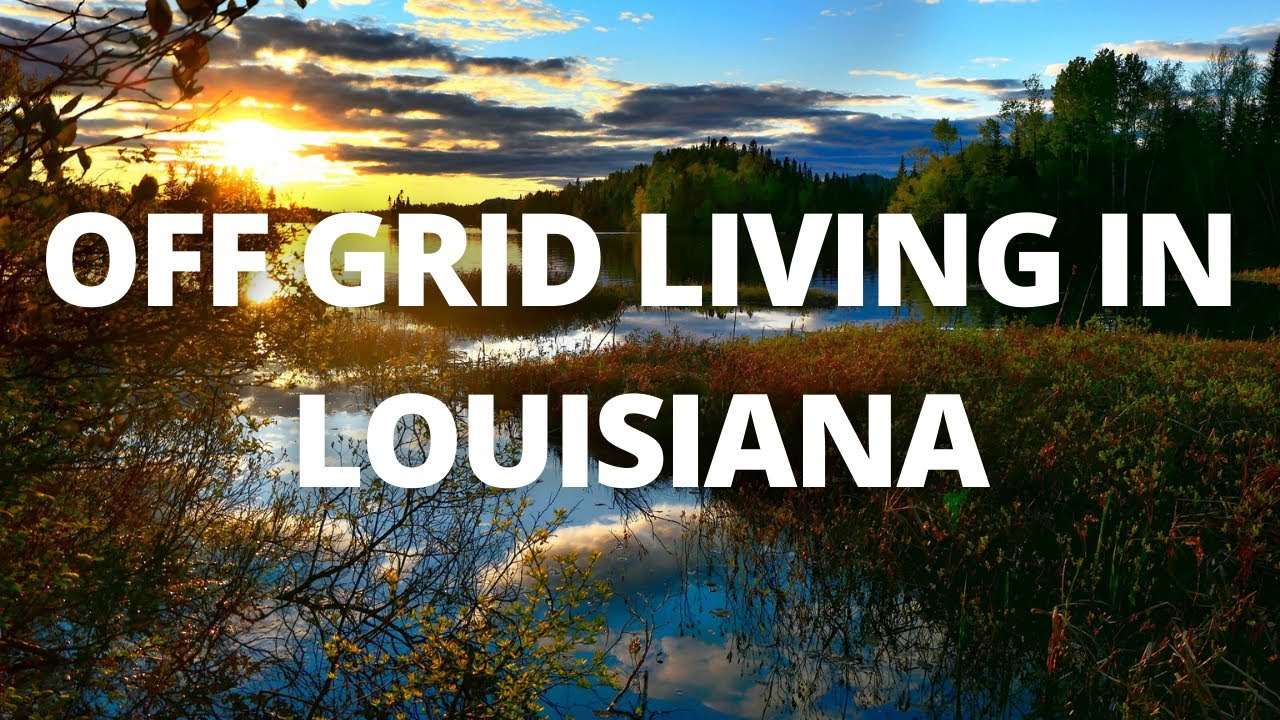
High Humidity and Hot Temperatures
Impact on Energy Consumption
One of the biggest challenges of off-grid living in Louisiana is coping with the high humidity and hot temperatures. The state experiences humid subtropical climate, with long, hot summers and short, mild winters. This can lead to increased energy consumption as you try to keep your home cool and comfortable. Air conditioning becomes a necessity, leading to higher energy demands and potentially increasing your reliance on alternative power sources.
Challenges of Maintaining Comfortable Indoor Conditions
With the high humidity levels, it can be challenging to maintain comfortable indoor conditions in an off-grid setting. Excessive moisture can lead to mold and mildew growth, which can cause health issues and damage your property. Proper ventilation systems and insulation techniques become essential to combat these challenges. Additionally, investing in dehumidifiers and ensuring proper sealing of windows and doors can help to create a more comfortable living environment.
Geographic Challenges
Marshland and Flood Risks
A significant geographic challenge of off-grid living in Louisiana is the abundance of marshland and the associated flood risks. Louisiana is known for its expansive wetlands and coastal Louisiana is particularly vulnerable to storms and floods. This poses a considerable challenge for those seeking to live off the grid in these areas. It is important to choose elevated and flood-resistant locations to avoid potential damage to your property.
Limited Land Availability
Another geographic challenge in Louisiana is the limited land availability. With much of the state covered by wetlands and marshes, finding suitable off-grid land can be a challenge. Additionally, the land that is available may come with restrictions or require additional permits for construction and development. It is important to thoroughly research and consult with local authorities before purchasing land for off-grid living.
Influence on Transportation
The state’s geography can also influence transportation in off-grid living. Marshlands and wetlands can make it difficult to access remote areas, particularly during periods of heavy rainfall or flooding. It is important to plan your transportation routes carefully and ensure that you have appropriate vehicles or alternative transportation methods to navigate the challenging terrain.
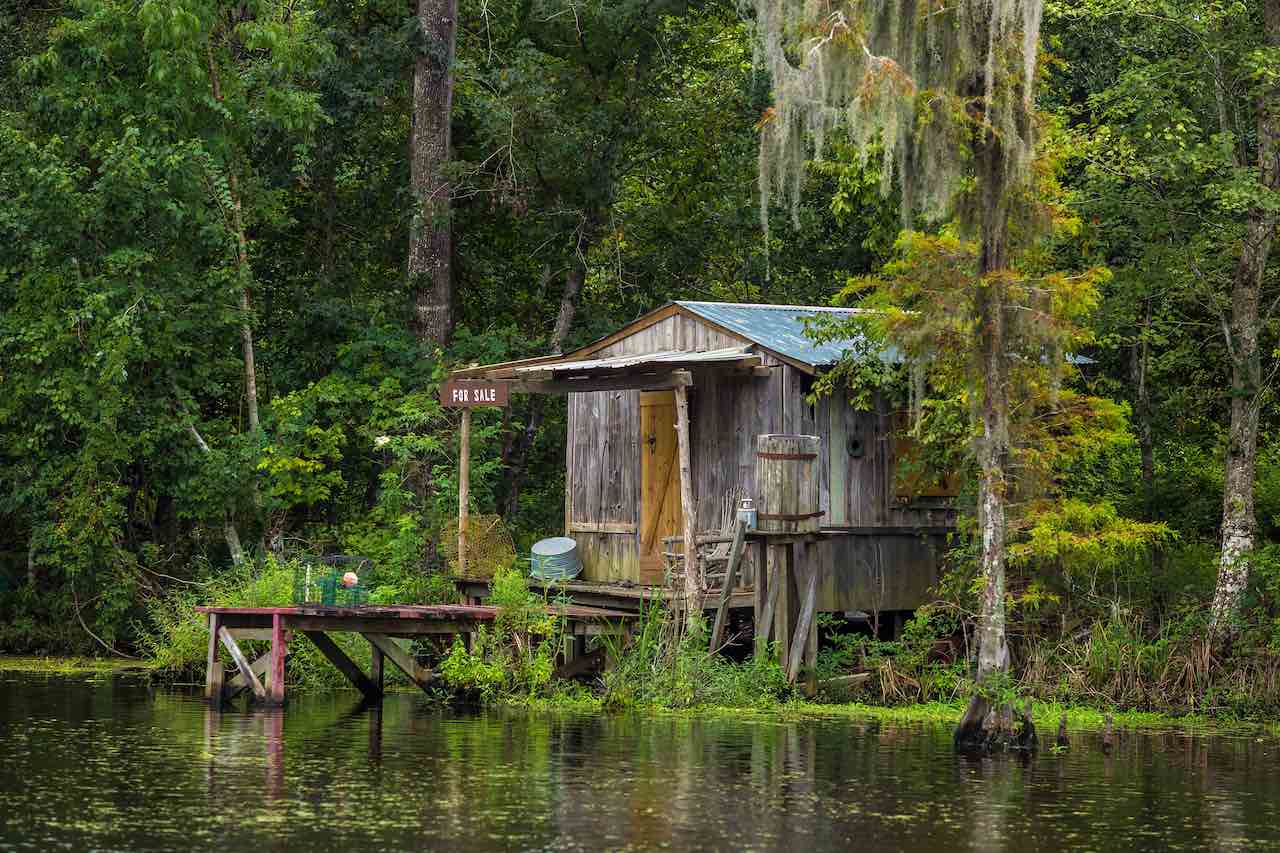
Freshwater Availability
State’s Wet Climate and Water Resources
Louisiana is one of the wettest states in the United States, with ample rainfall throughout the year. However, despite the abundance of water, maintaining a reliable freshwater supply can be a challenge for off-grid living. The wet climate can lead to contamination of water sources, making it important to implement suitable water filtration and purification systems to ensure safe drinking water.
Concerns of Water Contamination
Groundwater sources in Louisiana may be at risk of contamination, especially in areas with agricultural activities and industrial sites. This poses a risk to off-grid residents who rely on wells and groundwater sources for their water supply. Rainwater harvesting is a popular alternative in off-grid living in Louisiana, providing a more reliable and controllable water source. Implementing rainwater collection systems and ensuring proper filtration and treatment can help address the challenges of freshwater availability and contamination.
Insect Population
Mosquito Nets as a Necessity
Louisiana is infamous for its high insect population, particularly mosquitoes. Off-grid residents in rural areas often rely on mosquito nets and other protective measures to combat these pests. Investing in mosquito nets, screens for windows and doors, and bug repellents becomes essential to maintain a comfortable and bug-free living environment.
Challenges of Managing Other Insects
Aside from mosquitoes, Louisiana is home to a variety of other insects, including flies, ants, and beetles. Managing these insects can be challenging, especially for off-grid residents who may not have access to conventional pest control methods. It is important to explore natural and environmentally friendly pest control alternatives to minimize the impact of insects on your off-grid lifestyle.

Agricultural Considerations
Abundant Water for Irrigation
Louisiana’s ample water resources make it an attractive location for off-grid agriculture. The state is known for its crops like cotton, sugarcane, rice, corn, and grains, which thrive in the wet climate and offer opportunities for sustainable off-grid farming. With access to abundant water for irrigation, off-grid residents can cultivate their own crops and become more self-sufficient.
Risks of Excessive Water
While the wet climate can be advantageous for agriculture, it also poses risks of excessive water. Flooding is a common occurrence in Louisiana, and managing excess water becomes a challenge for off-grid farmers. Implementing proper drainage systems, raised beds, and flood-resistant infrastructure can help mitigate the risks associated with excessive water and ensure the success of your agricultural endeavors.
Suitable Crops for Off-Grid Living
In selecting crops for off-grid living in Louisiana, it is essential to consider the specific requirements of each crop and how they align with your off-grid lifestyle. Crops that require less water and are well-suited to the wet climate, such as rice and certain varieties of vegetables, may be more suitable for off-grid farming in Louisiana. Additionally, focusing on crops that can withstand the challenges of the local insect population can improve your chances of success.
Water Contamination
Risks of Groundwater Contamination
Water contamination is a significant concern for off-grid residents in Louisiana, particularly regarding groundwater sources. Agricultural activities and industrial sites can introduce pollutants into the groundwater, necessitating caution and proper filtration and purification systems. Regular testing of your water sources is crucial to ensure its safety for consumption and domestic use.
Rainwater Harvesting as an Alternative
Given the risk of groundwater contamination, rainwater harvesting presents an attractive alternative for off-grid living in Louisiana. With the state’s ample rainfall, collecting and storing rainwater can provide a reliable and clean water source. Investing in rainwater collection systems and implementing proper filtration and treatment methods can help ensure a sustainable and independent water supply for your off-grid lifestyle.
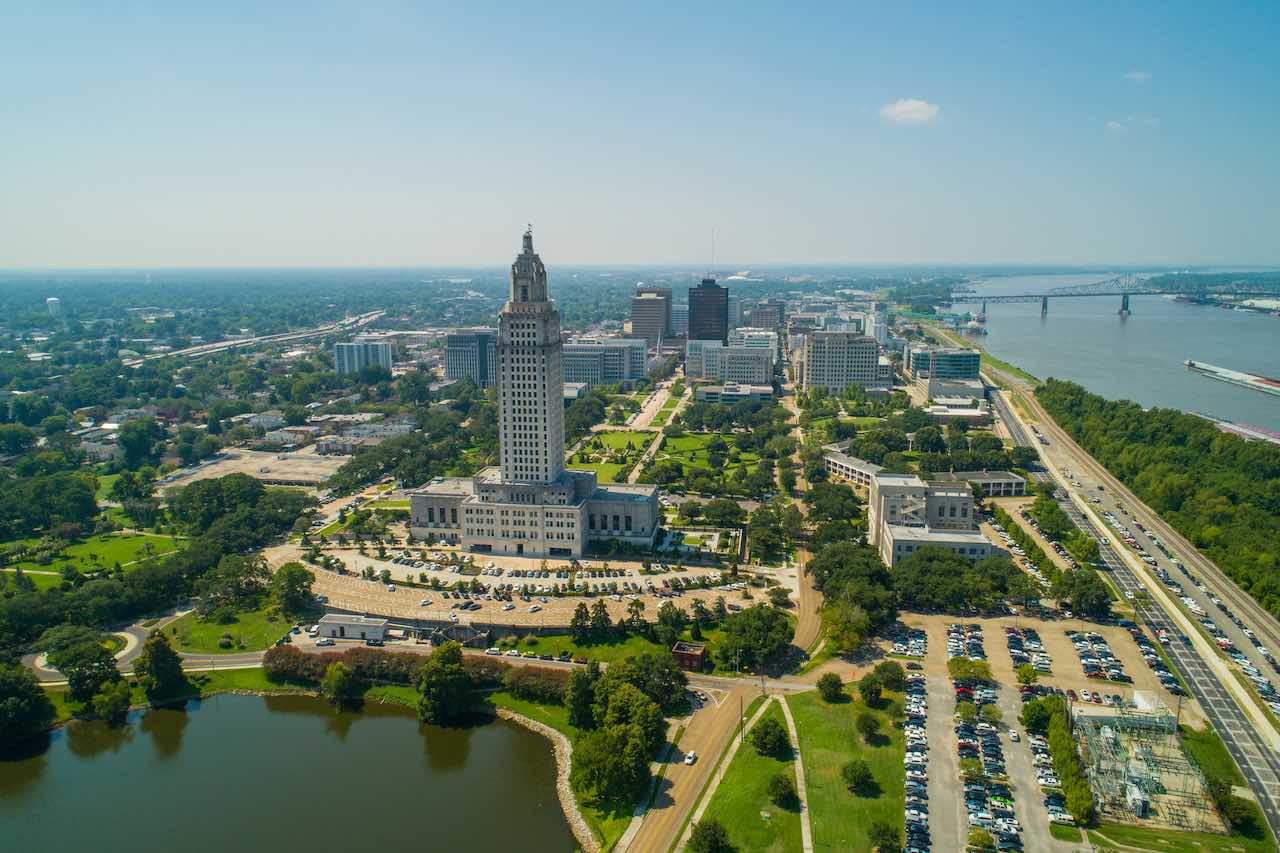
Wildlife
Diverse Wildlife in Louisiana
Louisiana is rich with diverse wildlife, making it an enticing destination for nature enthusiasts and off-grid residents who appreciate the outdoors. From alligators and turtles to bobcats and rodents, there are ample opportunities to observe and interact with the local wildlife. However, it is important to exercise caution and respect for the animals and their natural habitats to ensure a harmonious coexistence.
Opportunities for Fishing and Hunting
The abundant waterways and wildlife in Louisiana offer excellent opportunities for fishing and hunting, which can be important sources of food for off-grid residents. With proper permits and adherence to regulations, you can enjoy these activities as part of your self-sustaining off-grid lifestyle. It is crucial to educate yourself about local fishing and hunting laws and practice responsible and sustainable methods.
Road Access
Varied Road Access in Different Areas
Road access can vary significantly depending on the location of your off-grid property in Louisiana. While the northern parts of the state generally have better road infrastructure, marshland areas and more remote regions may pose challenges for accessibility. It is essential to consider the road conditions, access routes, and proximity to essential services when selecting a location for off-grid living in Louisiana.
Challenges of Navigating Marshland Area
Navigating marshland areas can be particularly challenging. It may be necessary to invest in suitable vehicles with off-road capabilities or consider alternative transportation methods such as boats to navigate these areas successfully. Additionally, understanding the tides and potential changes in water levels is crucial to avoid getting stuck or stranded in marshland regions.
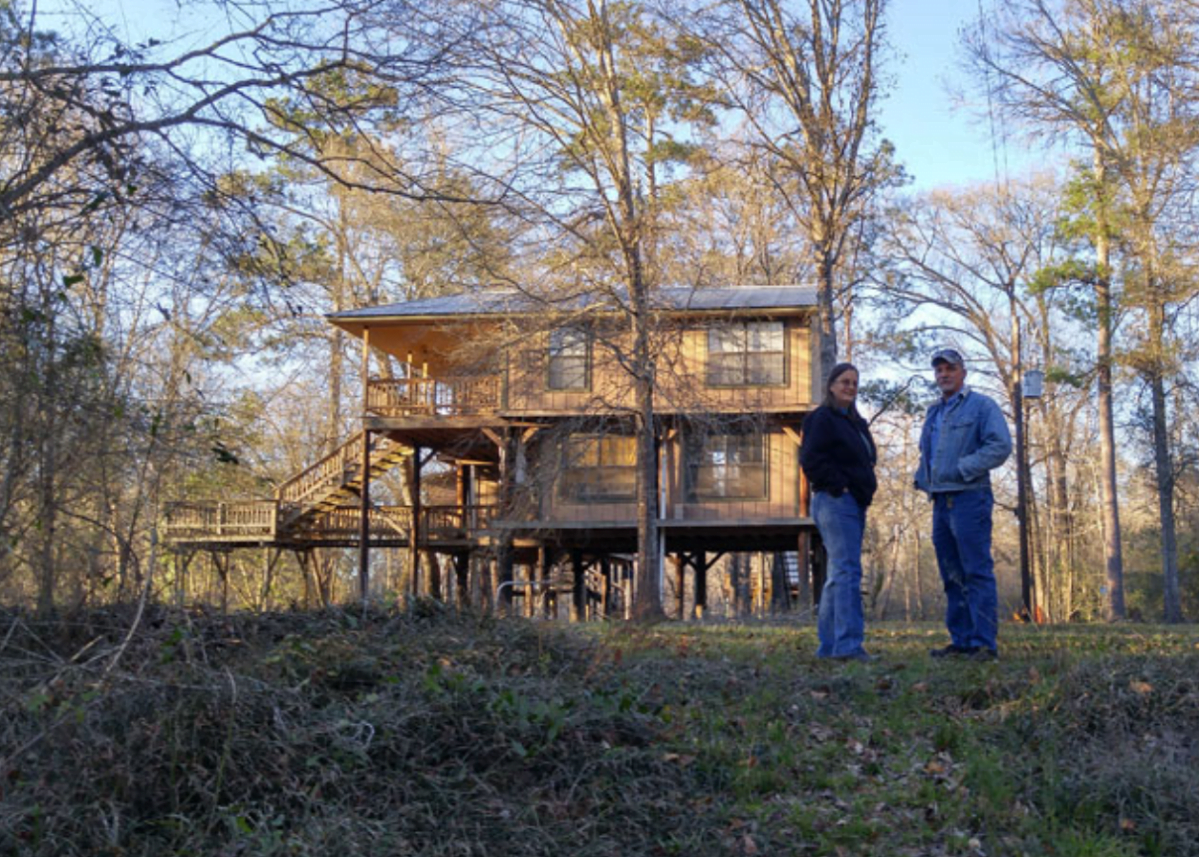
Natural Disasters
Frequent Hurricanes and Their Impact
Louisiana is prone to frequent hurricanes, which can have a significant impact on off-grid living. These powerful storms bring strong winds, heavy rainfall, and the risk of flooding, posing a threat to off-grid properties and infrastructure. It is crucial to have a well-thought-out disaster preparedness plan, including securing your property, stockpiling essential supplies, and knowing evacuation routes and emergency shelters.
Risks of Flooding and Thunderstorms
Apart from hurricanes, Louisiana experiences regular thunderstorms and the associated risks of flash floods. These events can impact off-grid residents, especially those in low-lying areas or regions prone to flooding. Adequate drainage systems and flood-resistant infrastructure become critical in minimizing the damage caused by flooding and ensuring the safety and resilience of your off-grid property.
Preparedness for Off-Grid Living
Living off the grid in Louisiana requires thorough preparedness to face the challenges posed by natural disasters. From having backup power sources, such as solar panels or generators, to maintaining a well-stocked pantry and emergency supplies, preparation is key. Regularly reviewing and upgrading your disaster preparedness plan is essential to adapt to changing circumstances and ensure the safety and well-being of yourself and your off-grid community.
In conclusion, while off-grid living in Louisiana offers the opportunity for a self-sustaining and independent lifestyle, it comes with its fair share of challenges. From the high humidity and hot temperatures to geographic limitations, freshwater availability, and risks of water contamination, it is important to understand and address these challenges when considering off-grid living in the state. By being prepared, taking necessary precautions, and adopting sustainable practices, you can navigate and overcome these challenges, allowing you to enjoy the benefits and freedom that off-grid living in Louisiana has to offer.

